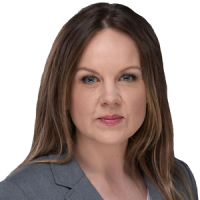ICBC is seeking a significant hike in basic auto insurance. The Crown corporation has filed an application with the BC Utilities Commission seeking an increase of 6.4 per cent.

That increase will cost about $57 annually to the average driver.
Minister responsible for ICBC David Eby said the corporation is in very bad shape.
“Last year alone, ICBC lost more than half-a-billion dollars in just 12 months. That loss is the largest annual loss in ICBC’s history.”
Eby said the provincial government will be limiting the rate increases while they repair the public insurer.
“Individual policy rates will depend on the age of the vehicle, value and use of a vehicle, and where it is being driven. For an average driver, this is an annual blended increase between basic and optional of 8 per cent, or $130,” read a release from the government.
A report released by Ernst and Young back in July detailed the financial woes of the Crown corporation, pinning the problems of rising rates on the increased number of claims, larger cash settlements, and legal costs involved in those cases leading to the unsustainability of the current model.

Get breaking National news
WATCH: New questions about ICBC

“Drastic action is needed to fix ICBC’s devastating financial crisis, but B.C. drivers should not be forced to pay 20% basic rate hikes today because of mismanagement that goes back years,” Eby said in a release.
Richard McCandless, a former intervener in a 2016 review of ICBC’s rates, has warned British Columbians to brace for big rate increases.
As part of the plan to help the organization, red light cameras will be activated 24 hours a day, seven days a week, rather than six hours per day.
The B.C. NDP will also be launching an operational audit of ICBC, as well as a pilot project to evaluate distracted driving reduction technology.
Eby also mentioned the possibility of having good drivers pay less than bad ones, but added that would require more policy work.
It didn’t take long for the BC Liberals to snap back at the government’s decision to increase ICBC rates.
In a news release, Andrew Wilkinson, the BC Liberals’ attorney general critic, said his party took steps to keep increases affordable and criticized the current government for offering nothing new to control the growth of claims.
McCandless criticized those remarks.
“If that’s what Mr. Wilkinson said, he’s kind of shameless,” he said.
McCandless said the NDP weren’t the ones who put ICBC in its current financial state.
“They were in power for the last 16 years and they were in power when I started warning about this sometime ago, that they were on an unsustainable path,” he said.
He thinks the BC Liberals should look in the mirror.
“Wilkinson should consult with his former colleagues in government Todd Stone and Mike de Jong how ICBC got into this mess in the first place because it was under their watch,” McCandless said.
“They kept subsidizing the lower than should be basic rates with one time savings money from the optional capital reserve and all that is gone now.”
- Coquitlam secondary school under precautionary lockdown again following threat
- No injuries or hazmat concerns after train derailment in Delta
- Fitness trial begins for man accused of killing B.C. Mountie Shaelyn Yang in 2022
- Inside the ‘con code’, the unwritten rules that may be fuelling prison violence
Make ICBC a co-op to solve its financial woes — that’s the repeated call from the BC Taxpayers’ Federation.
B.C. director Kris Sims said ICBC could be structured so that it functions similar to companies like VanCity or Mountain Equipment Co-op. Policy-holders, she said, could become olders of the company.
“And then open up that co-op to private competition, so you can pick ICBC but if you want to shop around and try to avoid these rate hikes that seem to be happening every year, you would be able to shop around to these other private corporations,” she said.
Sims said it’s a great compromise.
“Keep ICBC but change it so that it’s a co-op, it’s basically mutually-owned and publicly-owned within B.C. drivers. But open it up to competition on the other side so we can get lower insurance rate for drivers.”
Sims said B.C. drivers pay the second highest auto insurance rates in Canada.
Between 2011 and 2015, B.C. had the second highest percentage increase in rates behind Saskatchewan, she added.
- With files from Emily Lazatin














Comments